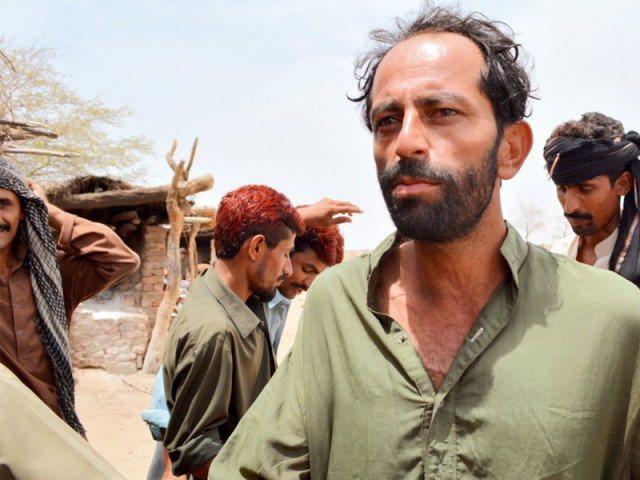
The residents of Thano Bula Khan suffer from drought-like conditions, food is alarmingly scarce, and the only hospital in the entire region is the oddly named Deeno Stop Hotel hospital. However, even that hospital is dysfunctional; it has been so for more than 20 years now.
The wooden board outside the building says that it was constructed by the Sindh Arid Zone Development Authority as the Basic Health Unit (BHU) here. However, it fails to mention when it was built, and the subject is often the centre of debate among the residents. “It was built around 20 years ago,” villager Alo Aklani said confidently, taking a long sip of his tea.
“No, no, it was built around 25 years ago,” another villager, Pappu, said just as confidently, also taking a long sip of his tea.
However, the villagers do agree on two things: that the building was completed on time and that it was never functional.
The lack of medical facilities is a cause of concern, especially for pregnant women and infants. “There is only one maternity home in this entire region, and it is located in the Thano Bula Khan town,” said civil society activist Shaikh Abdullah. “The residents don’t like going to public hospitals due to the lack of female doctors there.”

Basic medical facilities are a right of the people but it is a right that the poor are often denied, claimed another civil society activist, Lal Bux. “If the Deeno Stop Hotel BHU is made functional, then the health issues of thousands of families residing in the two union councils of Tong and Mole can be solved,” said Bux. “Residents of certain villages that have no roads connecting them to the cities have to travel for several hours before they can reach a hospital. If an emergency arises, then they are helpless.”
In case of an emergency, the best course of action is to get a doctor to the patient on a motorcycle rather than trying to take the patient. However, the nearest doctor can sometimes be as far as 20 kilometres away and most of them are quacks. That does not stop them from charging exorbitant prices, and any medical emergency up here comes at a steep price. “We have to sell our animals at cheaper rates in order to afford the fees of the doctors,” said a young boy, Pehlwan. “There is no other way.”

Another young villager, Pappu, points to the empty hospital building. “We hope that it will be made functional…one day.”
The answer to all their medical problems lies in front of them and yet all they can do is hope. “Our women and children suffer,” said elder Rahiman. “We see them dying but are powerless to help them. Pregnant women face excruciating pain for hours at end. It is very difficult for these women to go to the doctors in town on donkey carts or motorcycles. Sometimes, they die on the way there.”
Taking those in need of medical help to the cities is also not viable as the journey is expensive and, compared to the local ones, so are the doctors. “We mostly rely on local doctors,” said Shaikh, who believed that people won’t need to look towards the cities if a basic health unit is provided to them. “People only go to the bigger hospitals when they are struck by some serious illness.”
According to Aklani, the main problem of Kohistan is the lack of funds. “Everything is available,” he said. “But at a certain price, a price that we cannot possibly afford.”
Published in The Express Tribune, September 4th, 2014.


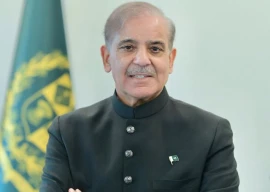

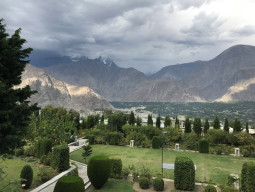
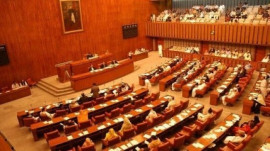
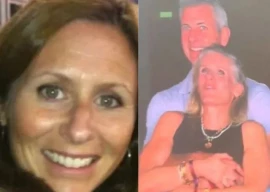
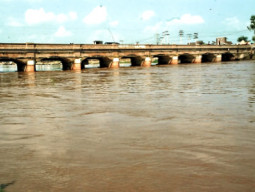


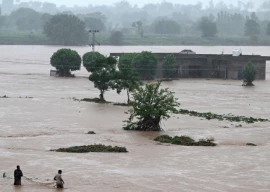
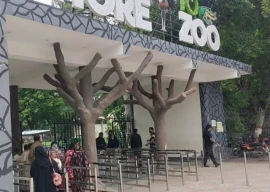






COMMENTS
Comments are moderated and generally will be posted if they are on-topic and not abusive.
For more information, please see our Comments FAQ